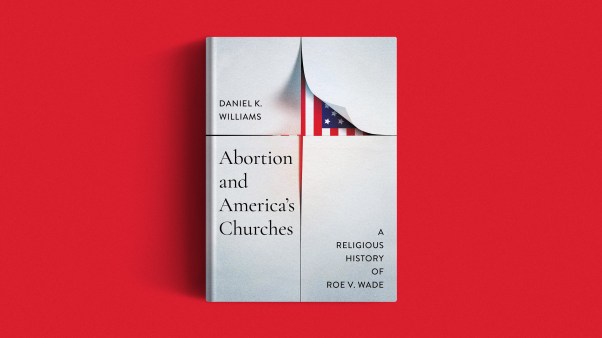Shortly before he resigned as the ninety-ninth archbishop of Canterbury, Geoffrey Fisher achieved an ecclesiastical scoop. He visited Jerusalem, was acclaimed there with rare unanimity by the Holy City’s religious competitors, and went on to Istanbul, where he had a friendly meeting with the ecumenical patriarch. He returned by way of Rome, where Pope John welcomed him with open arms.
That was good going in pre-Vatican II days (1960), and not surprisingly a large press contingent awaited his return at London Airport. The inevitable question was put: “What is the most vivid memory of your tour?” The primate replied thoughtfully, “Of a camel which looked at me with most ineffable scorn.”
Fisher had been at Canterbury since the end of the war, and the years of reconstruction had offered opportunities for his logical mind and great administrative gifts. An extroverted ex-headmaster who still believed in discipline, he was nevertheless approachable—and he would listen. He ordained privately a friend of mine whose non-evangelical bishop had refused to do so. I retain two handwritten letters Fisher sent me in the course of correspondence on a different matter, in which his Christian charity is rather more noticeable than mine.
When Michael Ramsey succeeded him in 1961, the change could scarcely have been greater. Ramsey was a scholar and a preacher, a little remote as a person, more than a little preoccupied as a chairman unless a subject had caught his interest.
His thirteen-year primacy was to be unusually eventful. There was Honest to God (1963); his advocacy of force against Rhodesia if necessary (1965); the first official Anglican visit to the pope since the Reformation (1966); his preaching in the Roman Catholic Westminster Cathedral (another first, 1968); his trip to South Africa (1970); and the failure of the Anglican/Methodist merger scheme (1972). There had also been that curious decision wherein the Church of England said in the same breath that there were no theological reasons against the ordination of women and that it was not going to do it.
Some of these issues are taken up in The Great Christian Centuries to Come: Essays in honour of A. M. Ramsey, edited by Christopher Martin, in which seven other Anglican scholars and one Methodist have participated. Understandably the focus is on England. In making it clear that Scotland, Wales, and Ireland don’t come into it, Martin raises a modest banner for St. George and fatherland: “Englishness still matters, in the sense that what the English are like and how they do still bears considerably upon the world.” Most of the essays have some overt connection with Dr. Ramsey. All the writers are ordained, which is perhaps anomalous because of the archbishop’s concern for the advance of synodical government in his church.
In discussing “The Gospel and the English Church,” D. L. Edwards offers a devious argument in defending Ramsey for not taking a stronger line over John Robinson’s Honest to God and “the radical theologians whose outbursts had caused great distress in the early 1960s.” (Edwards, it is pertinent to add, was the publisher of Honest to God.) That Ramsey could “see the point of.… John Robinson” is hailed as openmindedness; that he took Communion from Church of Scotland ministers “who lacked episcopal ordination” is seen as an example of his “silent humility.” Somehow I feel it could have been more happily put.
On the failure of the Anglican/Methodist scheme, Edwards says Ramsey made “an intellectually devastating critique of the objections” (a question-begger), but could not carry the day because of the “resentments and suspicions of the conservatives.” This simply will not do; several bishops not notably conservative in other ways had opposed the scheme. So had Geoffrey Fisher. These quite apart, there were enough Anglo-Catholics and Evangelicals to ensure that the required majority was never likely.
Kenneth G. Greet, secretary of the Methodist Conference, also confirms the book’s avowed Englishness by having an oblique dig at the Church of Scotland. The latter’s representatives are alleged to have shown that their “dislike of episcopacy runs deep.” While this clamors for clarification, it might be sufficient to say simply that Scots do not dislike episcopacy in others. What they have objected to historically is its forcible imposition on a Presbyterian country by a state that finds it convenient to have the monarch as head also of the church. What Scots still object to is the outrageous assumption in ecumenical matters that episcopacy is the norm, that Anglicans in ecumenical discussions are somehow negotiating from a position of strength, and that when the cards are put on the table such conversations are concerned basically with the terms on which non-episcopal churches will take bishops into their system.
Like Canon Edwards, Dr. Greet does no justice at all to dissentients from the merger scheme in 1972. There is nothing quite so frightening as the intolerance of liberalism coupled with that ecumenical myopia which ascribes to opponents motives meaner than one’s own. Dr. Ramsey, who is seen to have backed that merger scheme only belatedly, was not found at his best when the scheme failed and he told Greet dismally, “There is darkness.”
In a section on Eastern Orthodoxy A. M. Allchin doesn’t deal at all with the political implications (one day the WCC will be forced to grasp this nettle). In Martin Thornton’s essay, he speaks of revivals of Anglican spirituality only in terms of the High Church wing. This he describes as “conservative.” The opposite he calls “radical” (J. Robinson & Co.). Evangelicals evidently don’t exist, or don’t count. John Stott, Jim Packer, and Michael Green will doubtless be suitably chastened, but may find comfort in the fact that of the 110 footnotes alluding to sources, this book can manage only one biblical reference.
Yet another High Church contribution, however, comes like a breath of fresh air from the veldt: Bishop Trevor Huddleston’s essay “Out of Africa have I called.” It is moving, realistic, contemporary, first-hand, and deeply spiritual. He writes chiefly about his former diocese in what is now Tanzania. The deep spirituality remains even as he addresses himself to three main issues: nationalism, socialism, and cultural development. “I am writing here,” he says, “not of the limitations of a Church which is true to its Lord but of the challenge confronting such a Church, even when most faithful, in this present moment of African history.” The Church on African soil that Augustine of Hippo knew, he suggests, failed because it never tried to be anything but a Western import. It never won the hearts of the people, and it succumbed to Islam. Huddleston’s essay, unlike the others, never mentions Dr. Ramsey. Not least because the former primate is dubiously served by the fulsome tributes of his friends, he may not resent the omission.
He lives now in retirement in Oxfordshire, and has vowed to steer clear of church politics. He had thirteen heavy years—and the archbishop of Canterbury still earns less than a Marine colonel.
J. D. DOUGLAS










